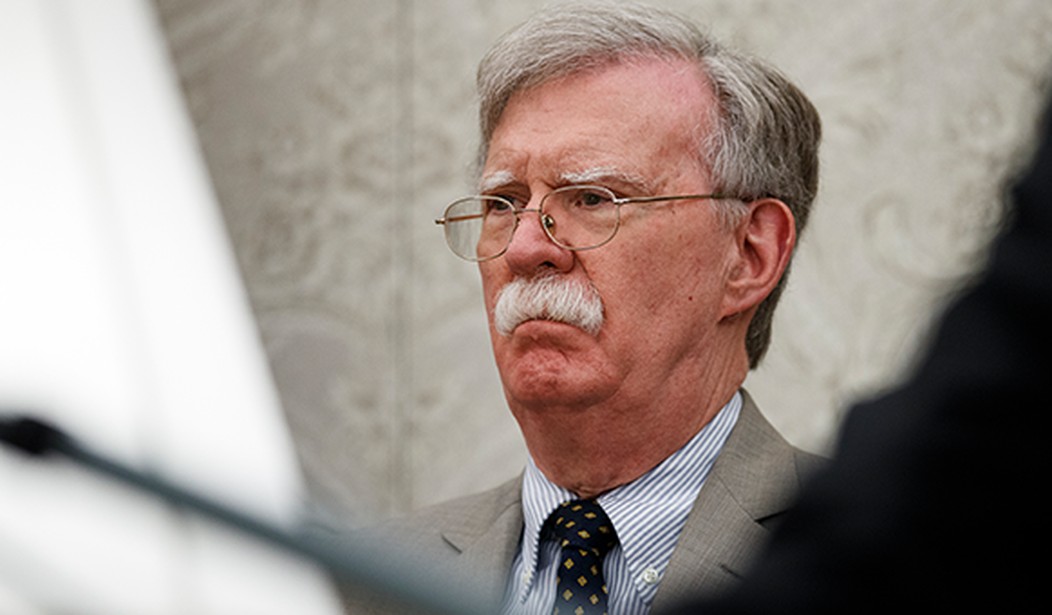In his new tell-all book, former National Security Advisor John Bolton claims the threat from North Korea today is “absolutely greater” than it was in 2016. One of Bolton’s chief complaints about Trump’s actions over the past two years was that he “gave away” joint drills that were “critical” to defend South Korea.
Bolton, like many in Washington, sees great value in these military exercises—but this is a flawed understanding of how deterrence works. It is not regular drills that ensure U.S. deterrence of North Korea, but the overall capacity of our muscular, comprehensive military power in comparison to the weakness of North Korea’s.
First, only some of the joint drills were postponed. Others were reduced in size and yet others continued on. In fact, the continuation of joint drills was a point of contention from the North as being a violation of what had been agreed to in Singapore. Yet even with the delay or reduction of some drills, whole other categories of training continued without pause or change. Military readiness is not predicated on engaging in a single type of exercise to prepare for real-world contingencies.
When I was a cavalryman in the 2nd Armored Cavalry Regiment in 1990, we spent hundreds of days per year training in the forests and plains of Europe to prepare for a possible Soviet invasion through the famed Fulda Gap. In August of that year, however, Saddam Hussein’s Iraq invaded Kuwait.
In February 1991 we attacked to expel Iraqi forces from Kuwait. We had virtually no time to reorient ourselves from fighting the Soviets in the plains and forests of Europe to battling the Iraqis in open deserts, yet we executed the mission with devastating success on the enemy. The reason? Because soldiers and Marines always train first at the individual level, then at the squad level, up through platoon, company, battalion, and then higher echelons.
Recommended
We base training on scenarios, but it is always with the understanding that when the real fighting comes, it will be different than our training, the fundamentals of our unit and individual training is what will give us success no matter where or whom we fight.
That is exactly what the U.S. Army in Korea does on a daily basis, and they are no less prepared to fight today than they were prior to the Singapore summit.
I was stationed in Korea in the late 1990s after having fought tank battles in Desert Storm and was subsequently deployed into combat zones three more times before I retired. I participated in all the major, large-scale training exercises in South Korea, as well as observed individual and small unit training among both the U.S. and South Korean militaries. And all the advantages go to the South Korean-U.S. alliance.
North Korea does have a robust defensive capability that would genuinely unleash great violence and destruction were they ever attacked. They have more than 10,000 short and long-range cannon and rocket artillery, significant numbers of ballistic missiles, and a million-man Army. Moreover, they almost certainly have some number of deliverable nuclear weapons.
If we were ever foolish enough to attack North Korea, they would unleash their arsenal and kill countless Americans and South Koreans. The combined power and industrial might of our alliance would eventually defeat North Korea, but at an intensely high cost in treasure and blood, a cost which could potentially devastate our economy and dramatically weaken for many years to come our overall ability to defend the nation.
Though Kim has shown himself to be a brutal dictator who would not hesitate to kill his own people to secure his power, he has nevertheless shown himself to be rational in his actions. He clearly does not desire to have nuclear weapons to attack the United States, but to deter us. Like the weaker country that North Korea is, they bank on loud threats and symbolic gestures such as the explosion that blew up the liaison office building last week.
It makes sense for America to continue working towards peace with North Korea and encourage reconciliation between North and South. But we don’t need an agreement to keep our country safe. Our existing military power will deter Kim indefinitely so long as we don’t make foolish offensive attacks like the Boltons of this world routinely advocate.
Daniel L. Davis is a Senior Fellow for Defense Priorities and a former Lt. Col. in the U.S. Army who retired in 2015 after 21 years, including four combat deployments. Follow him @DanielLDavis1.

























Join the conversation as a VIP Member